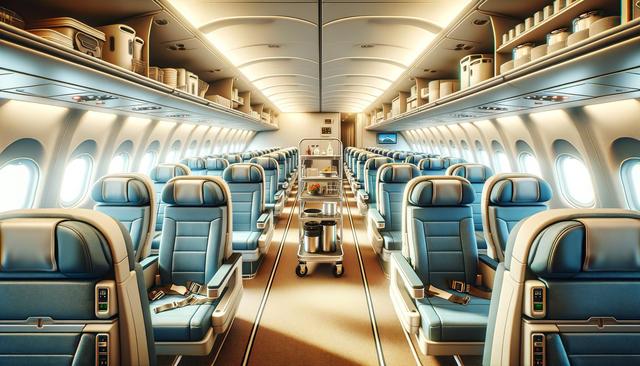
Dreaming of Becoming a Flight Attendant? This Is Where to Start
Understanding the Role of a Flight Attendant
Before committing to any training, it’s important to understand what the role of a flight attendant truly involves. Flight attendants are responsible for ensuring the safety, comfort, and overall experience of passengers during flights. This includes a wide array of tasks such as conducting safety demonstrations, assisting with emergency procedures, serving meals and beverages, and offering customer service. In addition to their onboard duties, flight attendants must remain calm under pressure, handle unexpected situations, and work long or irregular hours.
The profession also demands a strong sense of teamwork, cultural sensitivity, and excellent communication skills. Given these requirements, enrolling in one of the many reputable Flight Attendant Schools can help candidates build a strong foundation and prepare for the challenges and responsibilities of the job. These schools often incorporate real-world scenarios, safety training, and customer service modules to provide a holistic learning experience.
What to Expect from Flight Attendant Schools
Flight Attendant Schools offer structured programs designed to simulate the experience and expectations of working in the aviation industry. Most training programs cover both theoretical knowledge and practical application. Typical subject areas include:
- Federal Aviation Administration (FAA) safety regulations
- Emergency evacuation techniques
- First aid and CPR
- In-flight service procedures
- Passenger handling and conflict resolution
Programs vary in length, with some lasting just a few weeks and others extending up to a few months. Many schools provide hands-on experience using mock aircraft cabins and even offer opportunities for internships or job placement support. The goal is to prepare students not just for certification, but for the realities of the job market and the demands of daily flight operations.
Choosing the Right School for Your Career Goals
Choosing the right school is a critical step in launching a successful career as a flight attendant. Prospective students should consider several factors when evaluating Flight Attendant Schools, including curriculum, accreditation, instructor experience, and job placement rates. It’s also useful to check alumni testimonials and reviews to understand how well a school supports its students after graduation.
Some training programs are affiliated with regional or international airlines, which can offer a direct path to employment upon completion. Others may focus more heavily on customer service or hospitality, making them more suitable for individuals looking to transition from other service industries. When comparing options, it may be helpful to ask:
- Does the school offer certification recognized by major airlines?
- Is there ongoing career support or networking opportunities?
- Are there any additional costs for uniforms, materials, or exams?
Taking the time to research and compare schools will help ensure that the investment leads to meaningful opportunities in aviation.
Preparing for Admission and Application Requirements
Admission into Flight Attendant Schools typically requires meeting a set of basic criteria. While standards may vary by institution, most schools expect applicants to have:
- A high school diploma or equivalent
- Proficiency in English (and sometimes a second language)
- Strong communication skills
- A clean background check
- The ability to pass a medical exam
Some schools may also conduct interviews or group assessments to evaluate interpersonal skills and teamwork abilities. Preparing for these steps in advance can significantly improve your chances of admission. Applicants should polish their resumes, practice interview techniques, and familiarize themselves with the aviation industry’s expectations.
Additionally, many schools offer financial aid options or installment payment plans, making training more accessible. It’s worth contacting admissions counselors to explore what support is available and how to best navigate the application process.
Life After Graduation: Entering the Workforce
Graduating from one of the recognized Flight Attendant Schools can open doors to a wide range of opportunities in the airline industry. While completing training doesn’t guarantee a job, it often provides a competitive edge during the hiring process. Most airlines have their own rigorous recruitment standards and additional training programs, but having prior education can demonstrate a strong commitment and readiness for the role.
After graduation, job seekers should be prepared for a multi-step hiring process, which may include online applications, video interviews, assessment centers, and in-person interviews. Some schools offer ongoing career placement services or alumni networks that can help graduates stay informed about job openings and industry trends. Success in the field will depend not only on technical knowledge but also on adaptability, customer service skills, and a genuine enthusiasm for travel and service.
Over time, flight attendants can explore career advancement options such as becoming a senior crew member, trainer, or moving into corporate roles within the airline industry. Continuous learning and professional growth play a key role in building a long-term career in aviation.
Your Journey Starts with the Right Training
Starting a career as a flight attendant is an exciting prospect for those who enjoy travel, meeting new people, and working in dynamic environments. Flight Attendant Schools serve as a crucial first step in this journey, offering the skills, knowledge, and confidence needed to succeed. By choosing the right program, preparing thoroughly, and staying focused on your goals, you can position yourself for a rewarding and fulfilling career in the skies.


